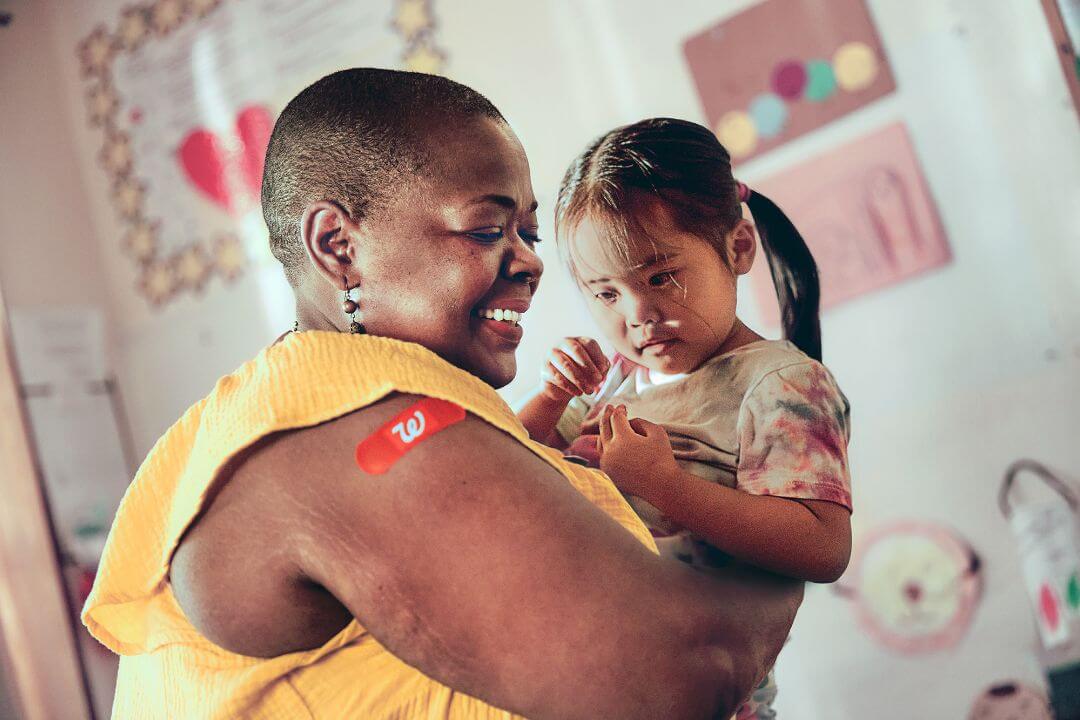- What is the MMR vaccine?
The MMR vaccine is a 3-in-1 vaccine that protects against measles, mumps and rubella. It’s a recommended childhood vaccine and is required for children to enter school in most states. Children need two doses of the vaccine, while adults who need it should get at least one dose.
To learn more about the MMR vaccine from the CDC, download the PDF to learn more about the MMR vaccine from CDC. Opens in new tab or visit the CDC website Opens in new tab.
- Who should get the MMR vaccine?
Children should get the first dose of MMR vaccine at ages 12–15 months and the second dose ages 4–6 years. Children can get the second dose earlier, if it’s at least 28 days after the first dose.
Adults who meet any of the following criteria can get the vaccine:
- Have never been vaccinated for MMR
- Have never had the diseases
- Don’t know if they’ve been vaccinated or had the diseases
- Born after 1956
- Work in a medical facility
Pregnant people should wait to get their MMR vaccine until after they’ve given birth. People should avoid getting pregnant for four weeks after getting the MMR vaccine.
- Who should not get the MMR vaccine?
- Anyone who has ever had a life-threatening allergic reaction to gelatin, the antibiotic neomycin or to a previous dose of MMR vaccine
- Anyone who is moderately or severely ill
- Anyone with the following characteristics should check with their healthcare provider about whether they should get the MMR vaccine
- Has HIV/AIDS or another disease that affects the immune system
- Is being treated with drugs that affect the immune system, such as steroids, for two weeks or longer
- Has any kind of cancer
- Is undergoing cancer treatment with X-rays or drugs
- Has ever had a low platelet count (blood disorder)
- What are the side effects of the MMR vaccine?
Mild-to-moderate side effects:
- Fever, rash and seizures
- Swollen glands in the cheeks or neck
- Temporary pain and stiffness in the joints
- Temporary low blood platelet count
Severe side effects, although rare, may include serious allergic reactions. Symptoms include:
- Deafness
- Permanent brain damage
- Difficulty breathing
- Wheezing
- Hives
- Pale skin
- Fast heartbeat
- Dizziness
Over-the-counter pain relievers such as acetaminophen or ibuprofen can help ease pain and reduce fever. Contact your doctor or pharmacist if you have any unexpected or worsening reactions after receiving a vaccine.
Schedule MMR Vaccine (Measles, Mumps & Rubella) | Walgreens

What are measles, mumps and rubella (MMR)?
The measles virus causes fever, cough, runny nose, pink eye and rash. If the measles virus infects the lungs, it can cause pneumonia. Some older children infected with the virus will suffer from brain inflammation, which can cause seizures and permanent brain damage.
The mumps virus usually causes fever, headache and swollen glands. It can lead to deafness, meningitis, painful swelling of the testicles or ovaries and, in some cases, death.
Rubella, also known as German measles, causes rash, low-grade fever and arthritis. If a pregnant person gets rubella, they could miscarry or give birth to a baby with serious birth defects.
Frequently Asked Questions
If you believe you have a medical emergency, please call 911.
References:
